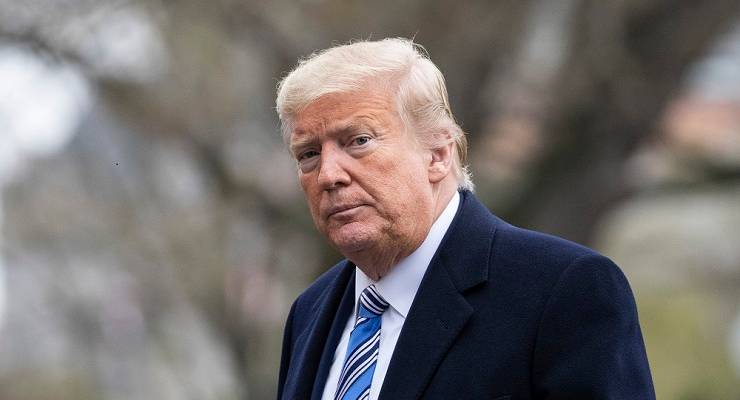
The New York Times has this morning released the long-awaited details of Donald Trump’s tax returns.
The bombshell report contradicts Trump’s successful billionaire-businessman persona, instead painting a picture either of a sly, stingy man who has craftily avoided paying taxes or of an inept business owner failing to make ends meet.

Trump had refused to release his tax return, saying an Internal Revenue Service (IRS) audit, launched in 2011, prevents him from doing so. The IRS has disputed this.
What do the tax returns reveal?
- Trump’s businesses aren’t going well: From 1985 to 1994 Trump lost more money than nearly any other individual American taxpayer. In 1995, he declared losses of US$915.7 million. Since 2000, he has lost US$315.6 million across his golf courses.
- These losses have helped him avoid paying tax: Trump has paid no federal income tax in 10 of the past 15 years, forking out just US$750 in personal income taxes in 2016 and 2017. The tax he has paid is being refunded.
- He’s up to his eyeballs in debt: Trump is personally responsible for loans totalling US$421 million. More than US$300 million will come due across the next four years.
- He pays more tax abroad than in the US: During his first two years as president, Trump received US$73 million from doing business abroad, including cash from golf properties. He paid more in taxes overseas in 2017 than in the US, including US$145,400 in India and US$156,824 in the Philippines.
- He pays a lot less than anyone else: Since 2000, Trump has paid about US$400 million less in combined federal income taxes than an average similarly affluent taxpayer. He has paid a lot less than other presidents, too — Obama and George W. Bush each regularly paid more than US$100,000 a year.
What don’t they reveal?
- The tax returns don’t show Trump’s net worth.
- They also don’t include Trump’s personal returns for 2018 or 2019.
- No new connections to Russia have been uncovered
- No new information about the $130,000 paid to adult actress Stephanie Clifford — who uses the stage name Stormy Daniels — was found.
How did Trump avoid paying so much tax?
A questionable refund: A major part of Trump’s tax avoidance was a $72.9 million tax refund, granted through an Obama-era provision as part of the GFC recovery effort. The bill allowed business owners to request full refunds of taxes paid in the prior four years.
Across 2005-2007, Trump paid US$70.1 million in federal income taxes after amassing more than US$120 million in profit from licensing deals and endorsements thanks to his appearance on The Apprentice.
In 2009, he walked away from the failing Atlantic City casinos, quitting the board and “abandoning his stake” in the company. By walking away, Trump could declare losses on the business he couldn’t previously use.
The recession provision meant the $70.1 million previously paid in taxes could be refunded with interest, totalling $72.9 million.
But there’s a catch: the claim can only be used if the person walks away from the business with nothing.
But Trump didn’t walk away with nothing, receiving 5% of the new casino company that formed when he renounced his stake.
In 2011, the IRS launched an audit into the refund. Almost a decade later it still has not been resolved.
Writing off business expenses: The IRS allows “ordinary and necessary” business expenses to be deducted, a standard which has been employed liberally by Trump.
Apparently, ordinary and necessary expenses include US$70,000 spent on styling Trump’s hair during The Apprentice.
His daughter Ivanka Trump’s styling has also been a business write-off, with $95,464 paid to a favourite hair and makeup artist.
$109,433 was also written off for linens and silver, and another $197,829 for landscaping at Trump’s golf resort Mar-a-Lago.
Paying his daughter: From 2010-2018, around one-fifth of income earned across most of Trump’s projects — totalling around $26 million — were written off as “consulting fees”.
These payments match financial disclosures his daughter Ivanka Trump filed when joining White House staff in 2017. Others familiar with major projects said they were not aware of consultants used.
Billions lost means less paid
The New York Times speculates Trump’s finances raise the stakes of re-election, with lenders he owes millions to forced to extend his loans or foreclose on a sitting president.
As Trump has said, “I lose billions being president, and I don’t care”. Though these billions reportedly lost means yet again, Trump could get away with paying minimal tax.








Crikey is committed to hosting lively discussions. Help us keep the conversation useful, interesting and welcoming. We aim to publish comments quickly in the interest of promoting robust conversation, but we’re a small team and we deploy filters to protect against legal risk. Occasionally your comment may be held up while we review, but we’re working as fast as we can to keep the conversation rolling.
The Crikey comment section is members-only content. Please subscribe to leave a comment.
The Crikey comment section is members-only content. Please login to leave a comment.